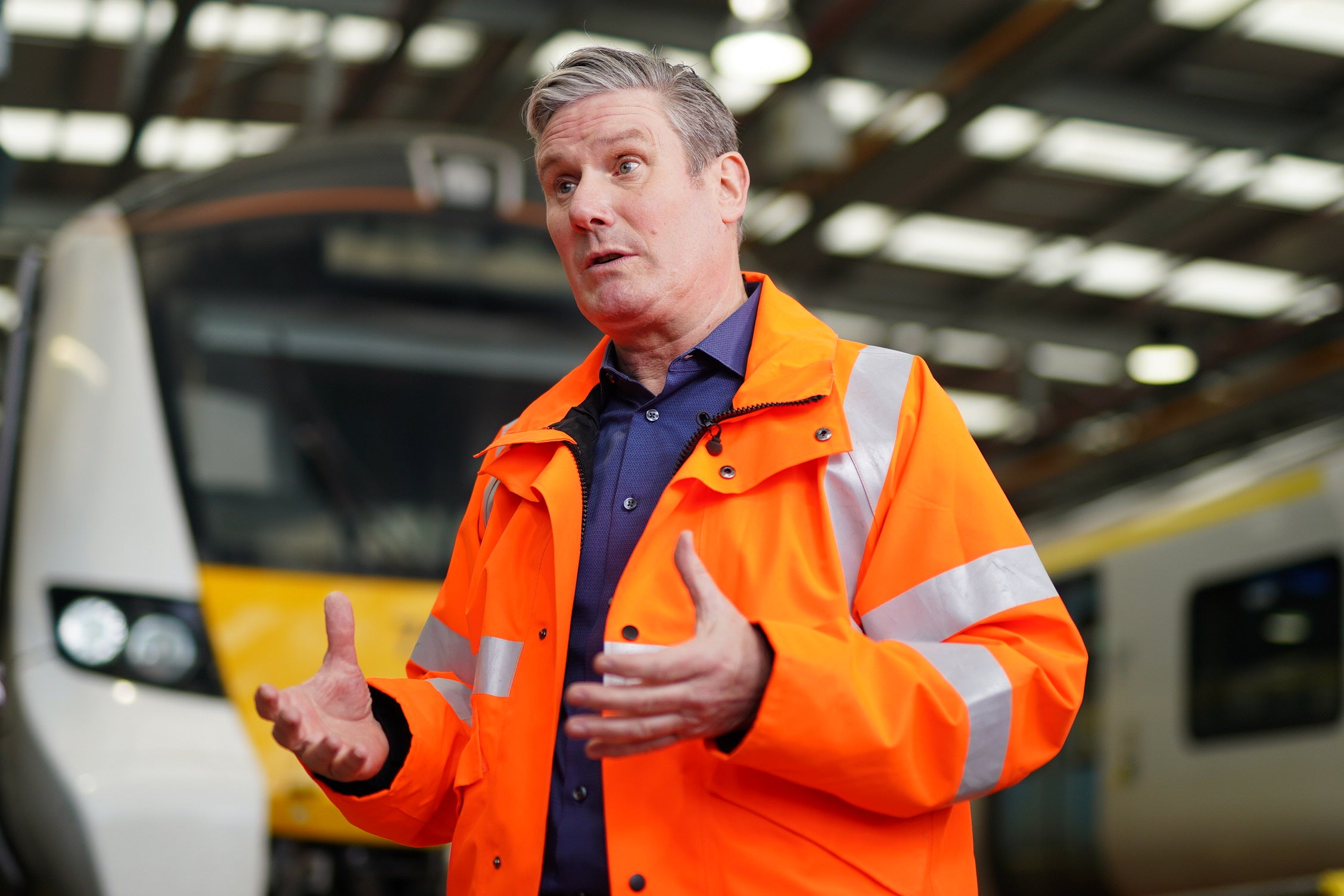For Starmer’s government to be successful, Labour will have to learn to say ‘No’
Labour may have ended two marathon disputes with junior doctors and rail workers, which were a major headache for the Tories, but the government must be prepared to stand firm in the future to safeguard the economy and public services, writes Andrew Grice


A Labour government hands inflation-busting pay rises to public sector workers and gives the trade unions a seat at the table with employers to discuss a radical extension of workplace rights and the repeal of some Conservative strike laws. On the face of it, it looks like a return to the 1970s – hardly a parallel Keir Starmer wants, given that the decade ended with the 1978-79 “winter of discontent” and the fall of James Callaghan’s government.
The Tories will certainly talk up the similarities. They landed their first successful blow on Labour since the election by accusing ministers of putting rail unions ahead of the pensioners who will lose the winter fuel allowance, after train drivers won a 15 per cent pay rise.
Yet the parallels are misleading. Labour is right to bring an end to the strikes by junior doctors and rail workers, which cost an estimated £1.7bn and £850m respectively, lengthened NHS waiting lists, and caused misery for train passengers. These two marathon disputes were solved quickly because Labour ministers sat around the table with the unions, which their Tory predecessors refused to do. Wes Streeting, the health secretary, taunts the Tories by saying it took him 14 days to end 14 years of Tory hostility towards the junior doctors. The endless strikes contributed to a sense that “nothing works” in “broken Britain” and damaged Rishi Sunak’s party at the election.
Labour is not “caving in” to its union paymasters, as some critics claim. The party is not as dependent on union funding as it traditionally was; big donations from wealthy supporters have filled the gap. Last year, Labour received £21.7m, including a record £13m from individuals.
Ministers hailed “a new era of partnership” with unions and employers, based on “respect and collaboration”, after joint talks on Wednesday. But we are not witnessing a return to a 1970s-style corporate state with key government decisions brokered in this forum. “Beer and sandwiches” with union leaders has been replaced by smoked salmon and scrambled egg breakfasts with employers, as Starmer’s party claims it is both “pro-business and pro-worker”. Three-way talks can be productive: Sunak’s most successful policy, his furlough scheme during the pandemic, was devised with the help of the Confederation of British Industry and the Trades Union Congress.
However, the Starmer government must ensure that its Employment Rights Bill to enhance workers’ rights, which will be introduced when parliament returns next month, does not impose so many extra burdens on companies (particularly small firms) that it undermines the economic growth on which Labour’s plans to improve public services hinge.
Similarly, Whitehall officials privately worry about the risk of “catching up” with the pay claims of groups such as GPs (who want 10.7 per cent) and other NHS workers, while other rail workers will next week demand parity with the train drivers. The train drivers’ union, Aslef, has seen off demands to modernise working practices – although Whitehall sources tell me the Tories would probably have beaten a similar retreat if they had remained in power. Union leaders are already calculating the best time to extract bumper pay awards in future years, when the government will likely be weaker as its popularity wanes.
Higher pay can boost recruitment, retention and morale after years of wage restraint, and therefore improve public services. But there is a cost: the Institute for Fiscal Studies warns that Rachel Reeves’s room for manoeuvre against her fiscal rules could be wiped out by the recent pay awards. Ministers struggled to explain where the money for the rail deal would come from, while insisting it was “a good deal for the taxpayer”.
The pay awards are a political choice. According to the Tories, the rises, along with this week’s figures that show that the economy grew by 0.6 per cent in the second quarter of the year, undermine Labour’s claim to have been landed with the worst economic inheritance since the Second World War. In turn, this could make it harder for the chancellor to justify the tax rises that are inevitable in the October Budget. But enjoying the fastest growth in the G7 might not last, and in any case, the Tories’ legacy on the public finances was a rotten one.
Sunak’s government budgeted for public sector wage rises of just 2 per cent, which was unrealistic given that the independent pay review bodies covering 6 million workers recommended 5.5 per cent. If Reeves had not accepted the proposal, which accounted for £9bn of her £20bn “black hole” in the current year, we would now be in the throes of a new wave of strikes. That would have reinforced voters’ suspicions that Labour is “no different” from the Tories.
For now, Labour ministers are right to say yes to big wage rises. But in future, they will have to learn how to say no, and to put reform on that shiny new negotiating table, to safeguard both the economy and the public services.



Join our commenting forum
Join thought-provoking conversations, follow other Independent readers and see their replies
Comments